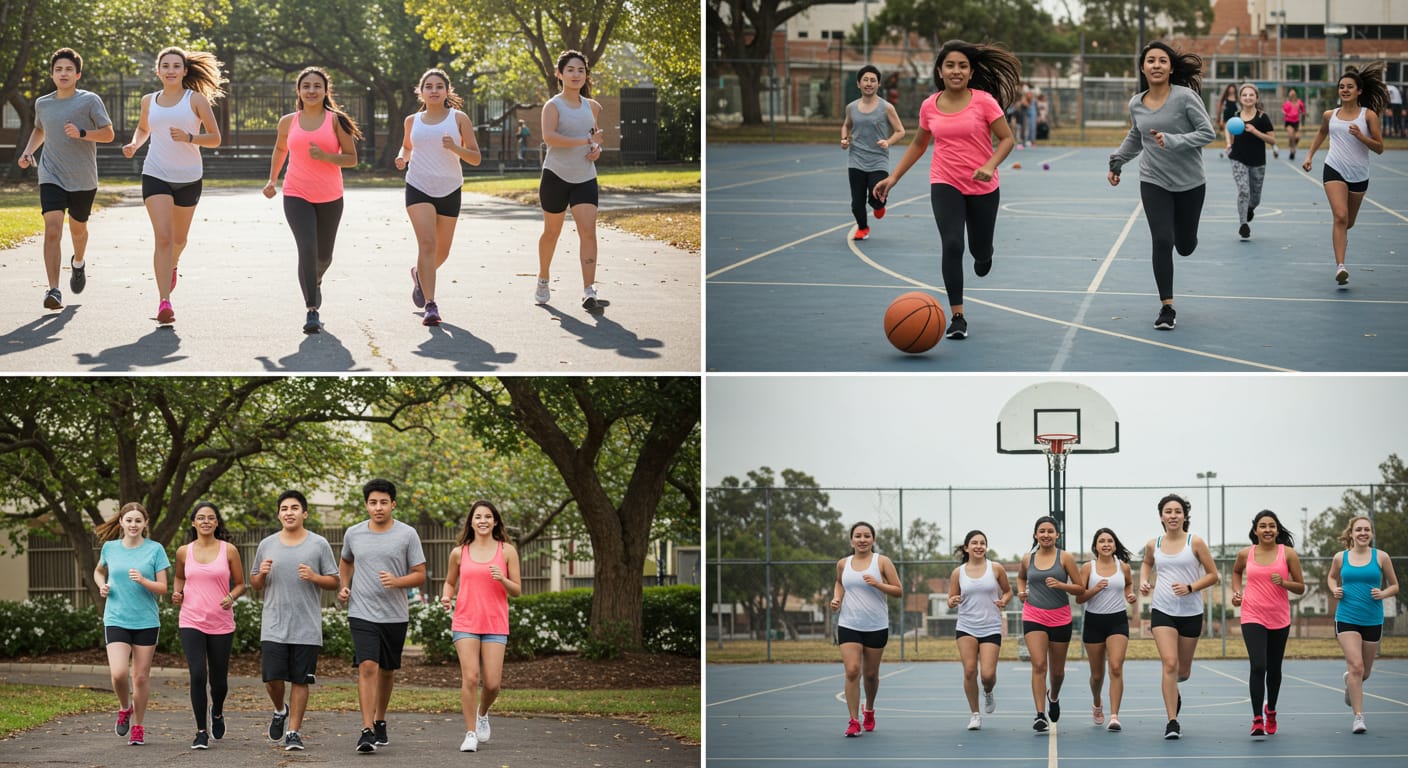🎯 “All truly great thoughts are conceived while walking.” — Friedrich Nietzsche
Phys Ed: More Than Just a Class
Physical Education (P.E.) is a staple in schools across the U.S., yet it’s often overlooked or undervalued—especially by teenagers. Despite the assumption that P.E. is an “easy” subject, it remains one of the least attended or appreciated classes among teens.
But here’s the truth: P.E. is vital—not just for fitness, but for emotional and mental health, too.
Move Your Body, Calm Your Mind
Whether it’s basketball, swimming, or simply a brisk walk, physical activity is one of the best natural mood boosters we have. These activities help reduce anxiety, elevate mood, and calm the nervous system. That’s because exercise triggers the release of endorphins—the “feel-good” hormones that naturally combat stress and pain.
Even a 10-minute walk can help clear a cluttered mind and prevent negative emotions from spiraling out of control. Movement gives teens a healthy outlet to express emotions and decompress from school or social pressures.
The Problem: Why Teens Avoid P.E.
Many teens skip or dread P.E. for various reasons:
-
Feeling uncomfortable in gym clothes
-
Limited time to change before/after class
-
Social anxiety or fear of being judged
-
Misunderstanding the importance of physical activity
As parents and guardians, it’s essential to validate their concerns—while still guiding them to see the lifelong value of movement.
Make It a Family Habit
Start at home. Go for walks with your child. Ask about their day. Laugh. Bond. You’d be surprised how a simple stroll around the block can open doors to meaningful conversations—and better moods.
Also, explore other family-friendly activities like:
-
Bowling
-
Bike riding
-
Hiking
-
Dancing in the living room
-
Joining a weekend sports league
The goal isn’t perfection—it’s participation.
In Conclusion: Movement Is Medicine
P.E. isn’t just about physical health—it’s a life skill. Regular activity improves your teen’s mood, reduces stress, and may even protect against depression. So don’t just encourage them to attend gym class—model it. Make movement part of your family culture.
✅ Start today. Walk. Laugh. Move. Grow—together.


